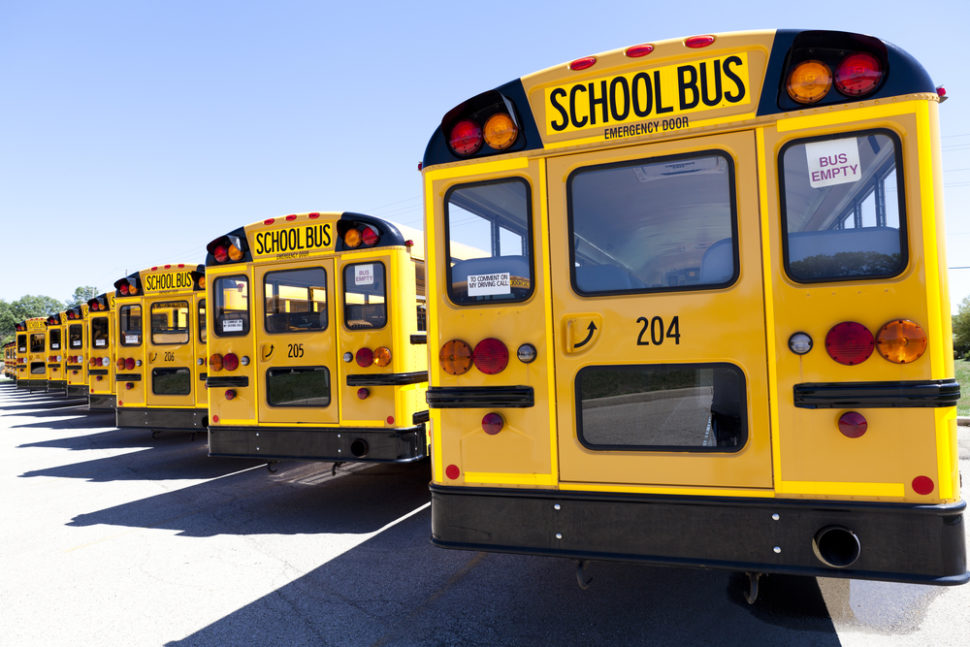Among the thousands of fossil fuel-powered school buses it makes and sells, Blue Bird has delivered 7 electric buses to customers in California.
As the most regulated vehicle on the U.S. roads, school buses are 70 percent safer than cars. The famous yellow paint itself was adopted in 1939 for more visibility and therefore more safety.
According to stats from the American School Bus Council, each day there are 480,000 school buses that transport over half of the 50 million American school children.
But it’s not just safety that made school buses the largest form of public transport in the States. It’s their ability to carry more children and reduce traffic congestion.
While eliminating 36 cars from the roads for each school bus provides a relative environmental relief, they still run on gasoline, diesel, or natural gas.
But the U.S. school bus market is welcoming a couple of electric units.
Blue Bird Taking Orders for Electric School Buses
Based in Fort Valley, Georgia, the Blue Bird Corporation has been manufacturing school buses since it was founded in the 1930s.
25 years ago, Blue Bird introduced its CNG-fueled buses. And while CNG (Compressed Natural Gas) is cleaner than other fossil fuels, it’s not a clean fuel.
Now, Blue Bird wants to go a step further by introducing electric school buses with the first unit hitting the road during this school year.
The company has announced the delivery of 8 electric buses to customers, 7 in California and 1 in Ontario, and that it has started taking orders.
Seven of the buses are Type D All American Rear Engines, which can carry 72 passengers, and one is the smaller Type A Micro Bird G5, with an autonomy of up to 120 miles, and 100 miles respectively, and six to eight hours charging time for both.
Customers who received the first batch of Blue Bird’s electric buses are rightfully excited as they can provide the same service to their school children while significantly cutting fuel bills and carbon emissions.
Read More: How Glass Batteries Could Take Electric Cars Mainstream
A Blip on the Global Environment Radar
Although a promising start, a couple of electric units in a half-million-fleet of fossil fuel-powered school buses won’t make any difference, environment-wise.
One could argue that Blue Bird’s bunch of electric school buses that took on the roads in North America are only the start for this manufacturer and that other school bus OEMs would follow suit.
Although this is all likely to be true, if we look at the global picture, we quickly realize it will be of little import.
What happens to the polluting buses that are phased out?
Will they enter the global vehicle donation programs to spew out pollutants under other skies in the world?
That’s like passing a hot potato around, only you’d still feel the heat, literally.
In a perfect world, school buses should all be running on clean power, and that’s when their true potential at cutting emissions will be felt.
We’re nowhere near that, but here’s hoping that the first electric school buses deployed in North America will trigger a virtuous circle around the world.



Comments (0)
Most Recent